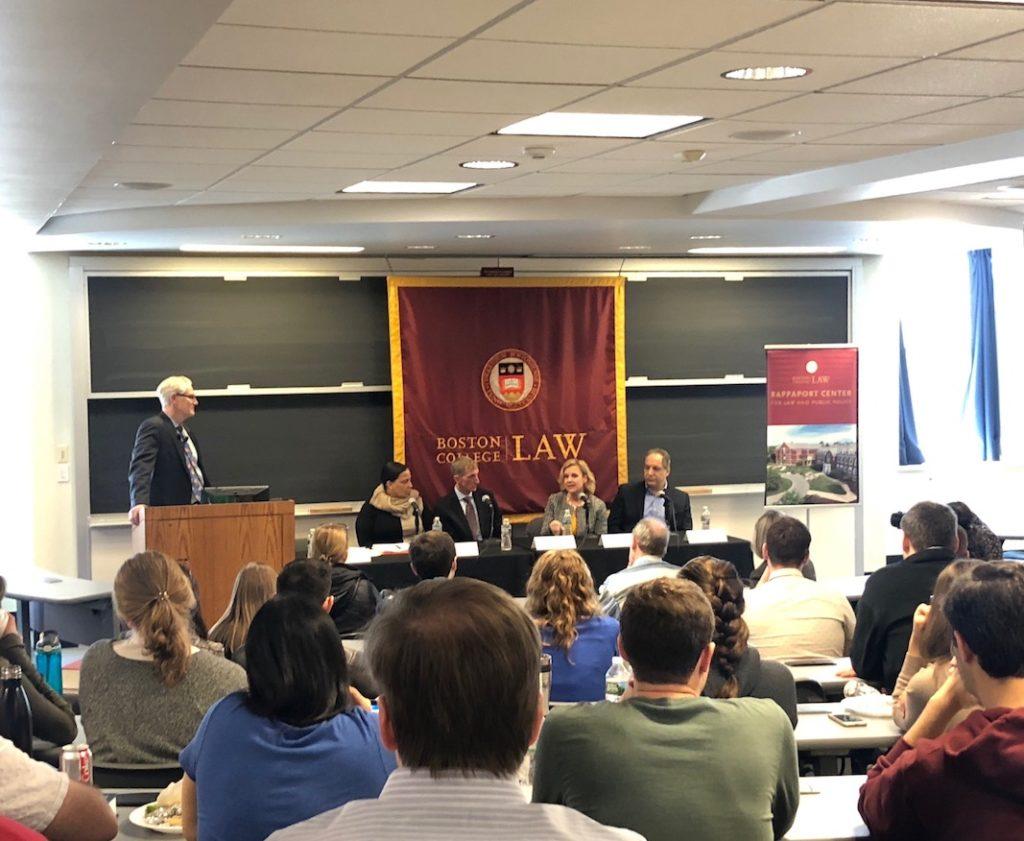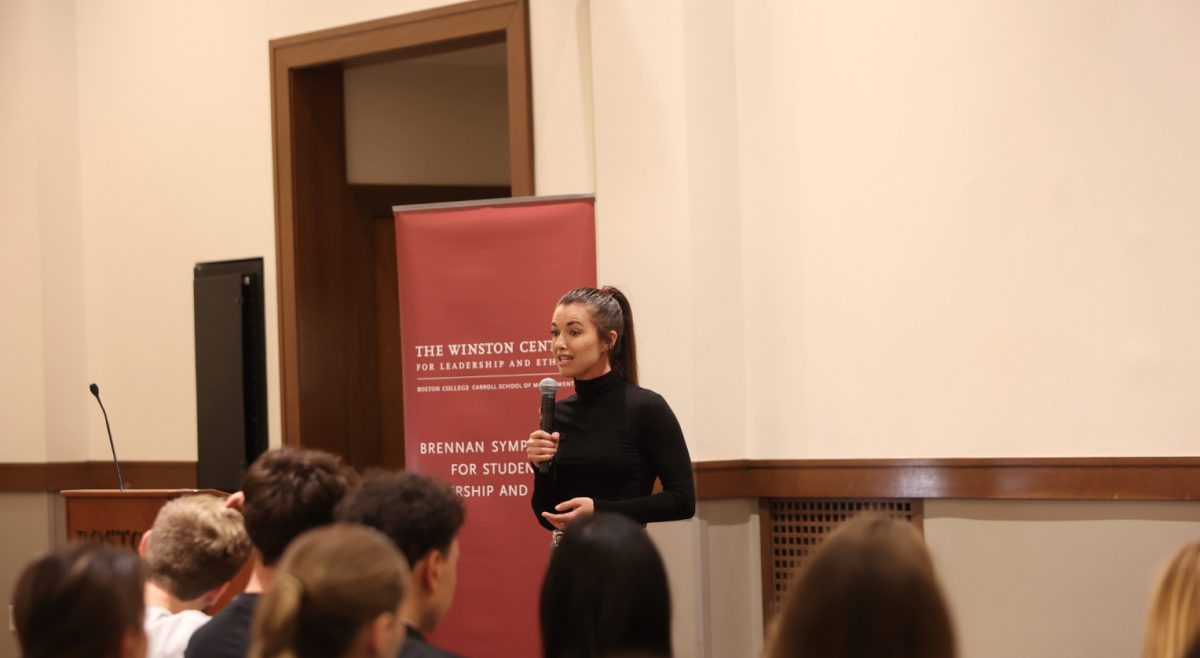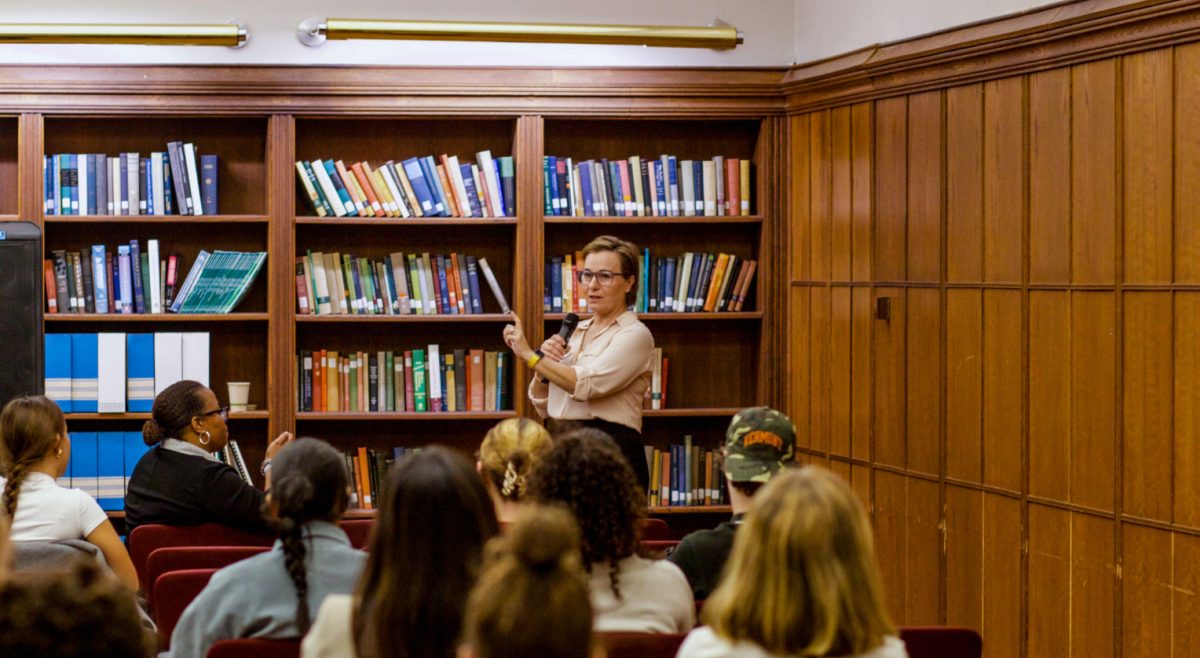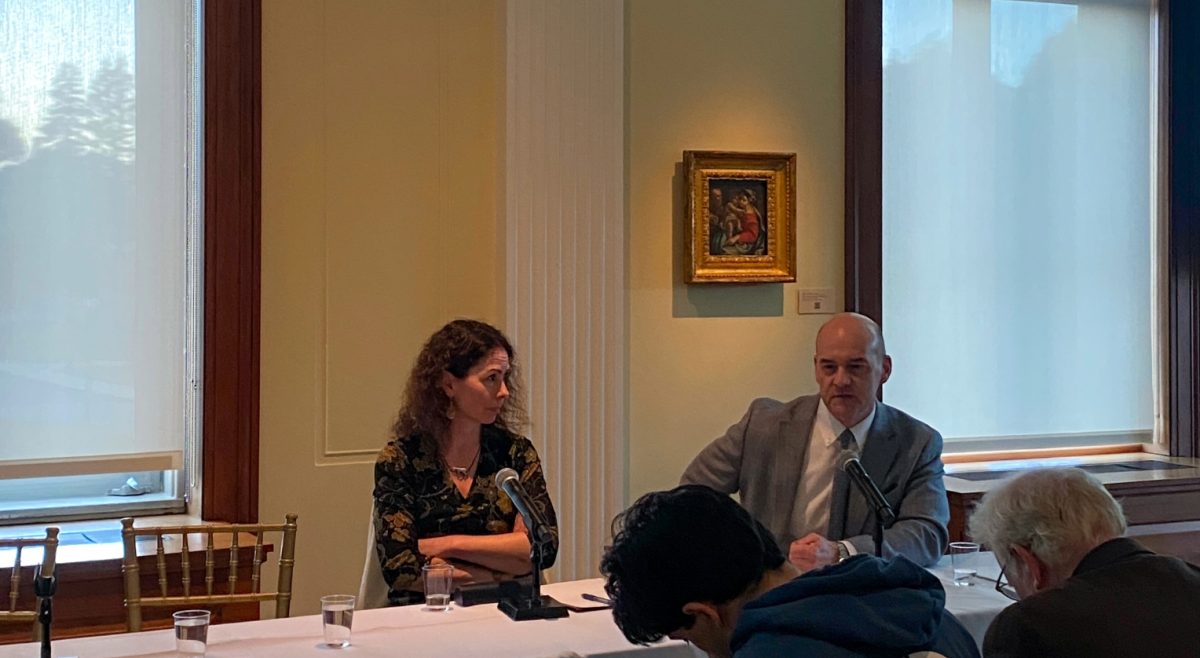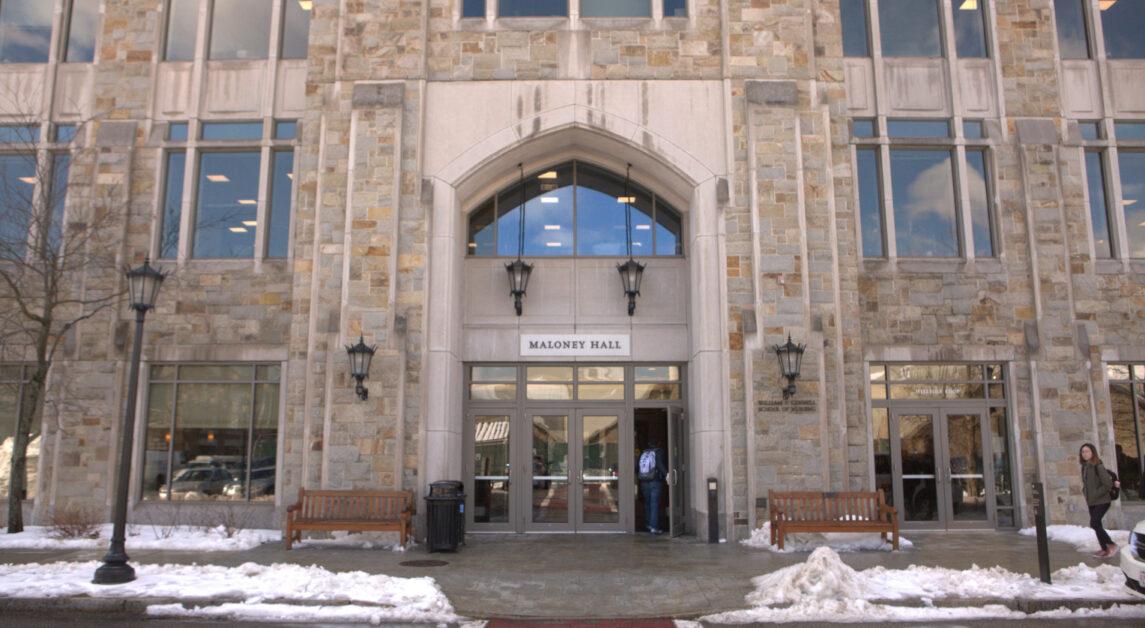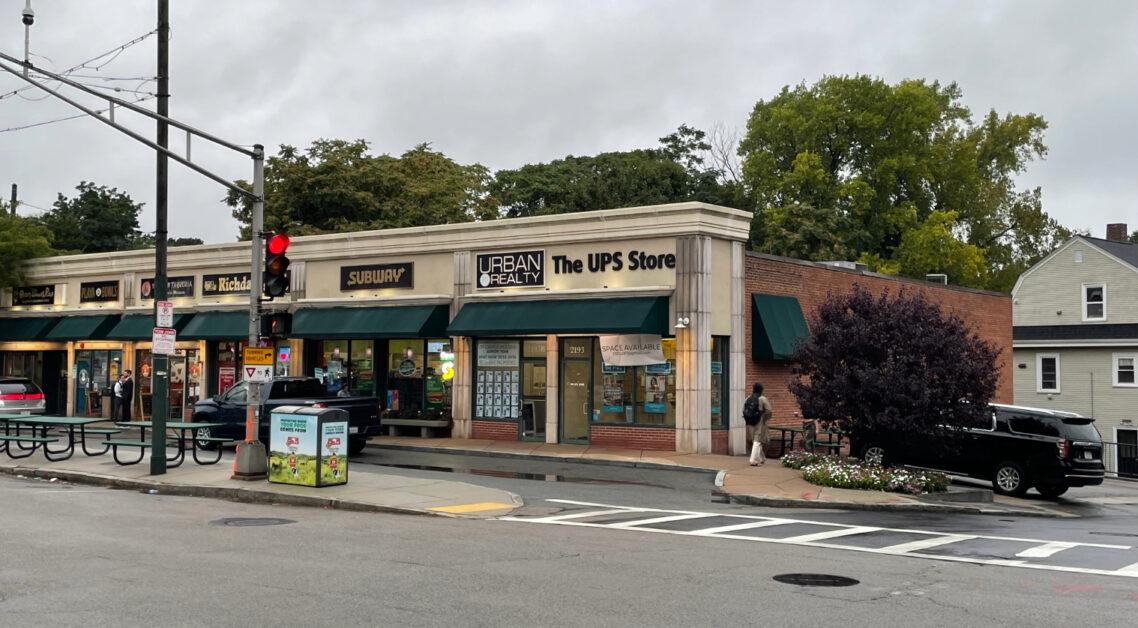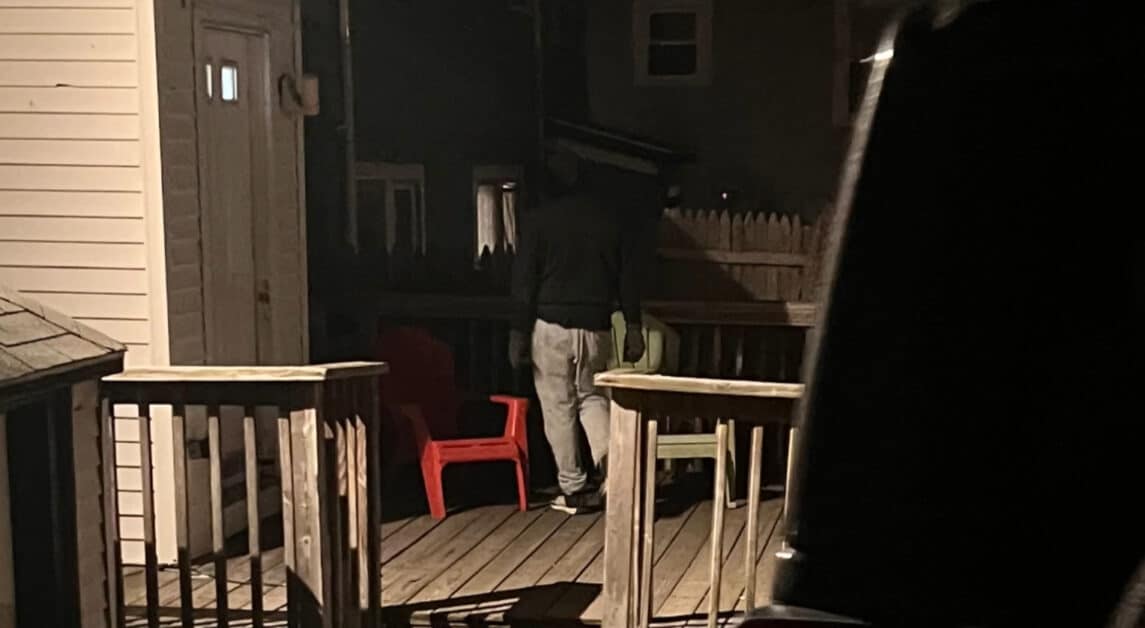Suffolk County District Attorney Rachael Rollins has recently received backlash for implementing a policy related to the non-prosecution of certain charges, including disorderly conduct, minor driving offenses, drug possession, and possession of alcohol by minors. Rollins discussed this policy and answered questions about the criminal justice system in Suffolk County at a panel at the Boston College Law School on April 3, which was hosted by the Rappaport Center for Law and Public Policy.
Rollins released a 65-page memo last month detailing data and proposals for changes related to the way Suffolk County approaches criminal prosecution. The memo includes a proposal with a list of 15 relatively minor crimes for which the default response would be to decline prosecuting.
Instead, these cases will be outright dismissed or, “where appropriate,” treated as civil infractions for which the person who commited the crime would have to complete community service, restitution, community-based programming, job training, or schooling. In the case that prosecution of one of these charges is warranted, district attorneys in charge of prosecution must first get the permission of their supervisors.
“[These crimes] are clogging up the system,” Rollins said at the panel, where she was joined by BC Chief of Police Bill Evans, Suffolk County DA’s Office General Counsel Donna Patalano, and former U.S. Attorney for the District of Massachusetts Bill Weinreb.
“People are spending resources and hours in man and woman power on them, when we should be diverting that to helping solve the 1,000 unsolved homicides we have in Suffolk County, increasing the non-fatal shooting solve rate from around 10 percent.”
Massachusetts Public Safety and Security Secretary Thomas Turco released a letter criticizing a number of policies listed in the so-called “Rollins Memo.” The letter, which said that the implementation of these policies would inhibit the state’s ability to combat the opioid crisis and protect people who have been threatened with serious crimes, has lead to a days-long dispute between Rollins and Massachusetts Governor Charlie Baker, according to The Boston Globe.
Boston Police Commissioner William Gross told reporters outside of a Boston City Council hearing on Tuesday that members of his department will be using their discretion when it comes to arrests, according to WGBH. He emphasized that nobody who commits a crime will get a free pass just because they incorrectly interpreted Rollins’ policy.
At the panel, Rollins pointed out that 61 percent of the time that these 15 crimes happened during the term of her predecessor, Dan Conley, they were dismissed or diverted—Rollins said that her policy just says out loud what has already been in practice.
She noted the difference between dismissing a case pre-arraignment and diverting it post-arraignment: Once someone has been arraigned, the charges will appear on their criminal record.
“For me, these 15 crimes—overwhelmingly crimes of poverty, mental illness, and substance use disorder—I want to get people out of the system and get them the help that they need, prior to them getting a record,” Rollins said.
The moderator of the panel, BC Law professor Michael Cassidy, asked Evans about whether police officers would face a problem, in terms of maintaining order and protecting public safety if the community knows that once they are arrested for certain crimes, their case will be dismissed.
Evans said that there was a lot of discretion in Rollins’ policies that he thinks police officers have always had.
“What’s Rachel was saying is what’s always been—if we can give a kid a break, we’ll give him a break,” Evans said.
Evans noted that during his time growing up in South Boston, many of the kids around him were given second chances through diversion from the system, so he understood the importance of giving someone another opportunity.
Evans said that there are obviously violent offenses out there worthy of prosecution, but he thinks that Rollins has made it clear those are not going to be tolerated. Her intent, he said, is to divert people from the system who have extenuating circumstances pushing them to commit those crimes.
“The whole idea of a policy that you can’t lock up for shoplifting—that’s not what she’s talking about here,” Evans said. “She’s talking about someone who might be stealing because the mother needs diapers, or she needs formula, or something like that.”
One audience member inquired about how Rollins planned to ensure the people she has oversight over, such as her assistant district attorneys and administrative staff, stick to these new policies.
“We’re going to be training, and we’re going to be documenting,” Rollins said. “There’s a section [in the memo] about what we’re going to be collecting. We are working closely with our data specialist to make sure we are inputting that information and looking at it often to see any trends.”
Another attendee asked if the number of the crimes listed in Rollins’ policy will increase because the message has circulated that the consequences are not as great as they used to be. Rollins responded that they would have to wait and see what the data said—which is why collecting it would so important.
“I don’t think [the policy] is being translated to ‘it’s free season,’” Rollins said. “We’re getting you services. … These are not the terrorist, mastermind people we’re talking about. We’re dealing with people that are hurt. We’re dealing with people that have lots of issues in their lives.”
Rollins noted that she didn’t want to make excuses for people committing these crimes. She pointed out, however, that it costs $55,000 a year in tax dollars to house someone in the Suffolk County House of Correction.
“I’d rather put somebody into a program. … I’d rather get them services or treatment, and not in South Bay or Nashua Street,” she said. “I want them getting better and not coming into contact with our system. We are very good at—when people come in contact with the system—throwing them on a conveyor belt and getting them to jail.
“I just want to do a quality check on some of these crimes. If we need to put them back down, we can. We do that very well. We’re going to try some things differently.”
Featured Image by Abby Hunt / Heights Editor

